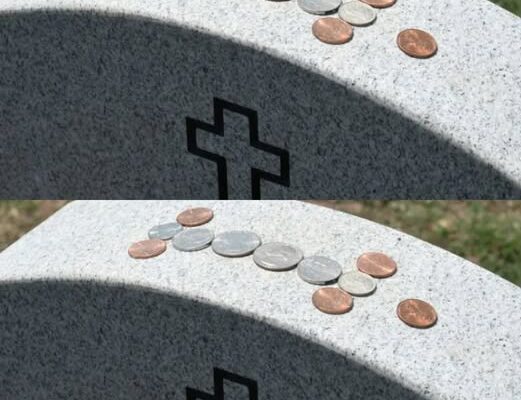Placing coins on military gravestones is a quiet yet deeply meaningful tradition that speaks volumes about honor, remembrance, and connection. Though it may appear to be random spare change, each coin left behind carries a specific message. Rooted in both ancient customs and modern military culture, this practice has become a sacred ritual in cemeteries across the United States, particularly in places like Arlington National Cemetery.
The tradition is believed to have ancient origins, but its modern American form gained traction during the Vietnam War. During that divisive time, many veterans felt unable to express their grief openly. Leaving coins on the graves of fallen comrades became a discreet and personal way to say, “I remember you. I was here.” It allowed for mourning without political entanglement and became a quiet act of respect among soldiers.
Each coin has its own significance. A penny means someone visited to pay respects. A nickel signals that the visitor trained with the deceased. A dime indicates they served together during active duty. And a quarter, the most powerful symbol, means the visitor was present when the fallen soldier died. These small tokens transform into messages of shared history, experience, and sacrifice.
For grieving families, discovering these coins means their loved ones are still remembered by others who walked beside them. It affirms that the sacrifice made in service has not faded from memory, even years later. It’s a deeply moving form of silent solidarity.
This humble tradition continues to endure, reminding us that honor lives on—not just through ceremonies, but through simple, heartfelt gestures left behind by those who remember.



